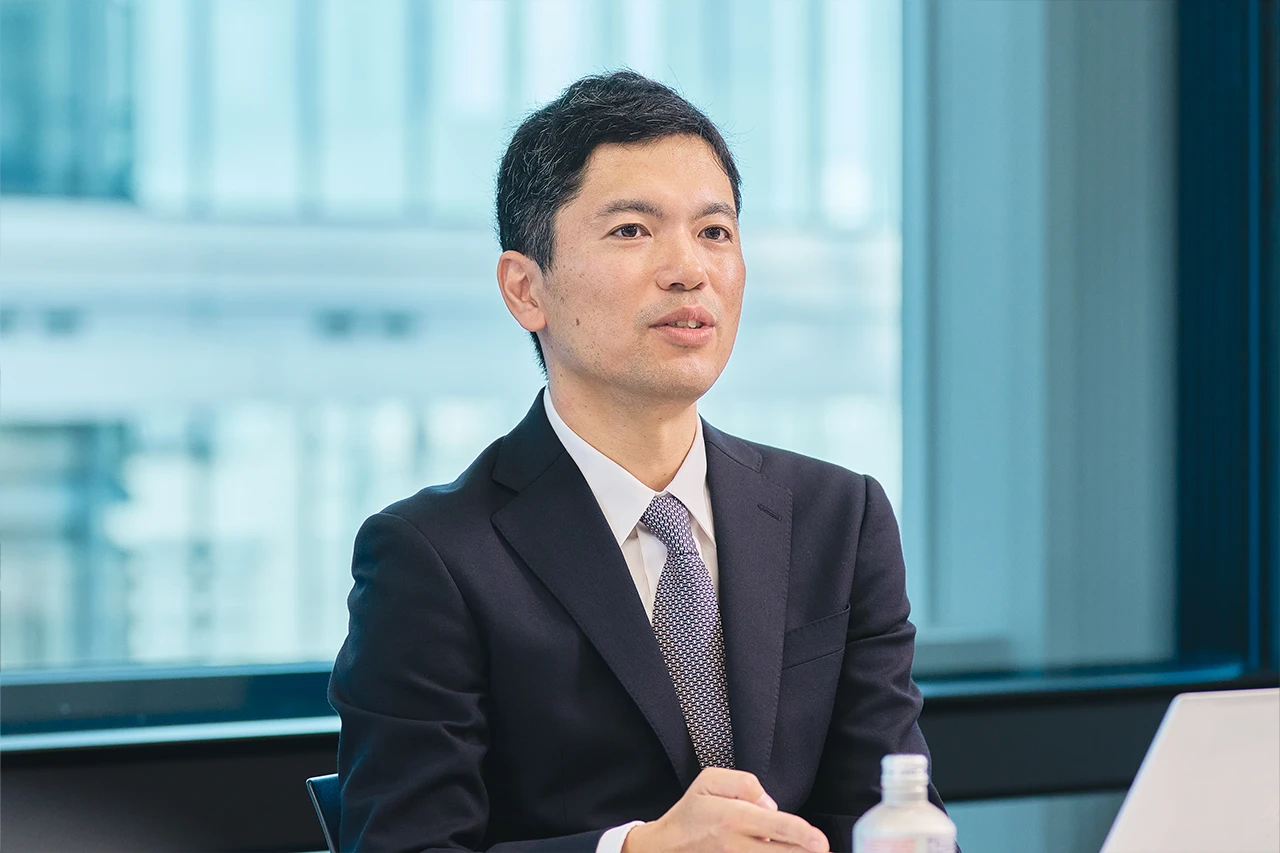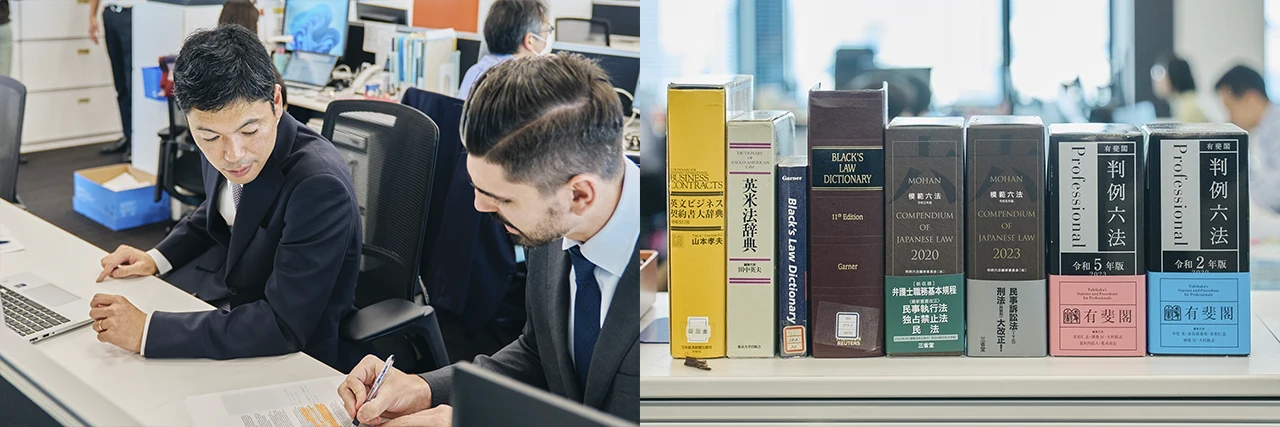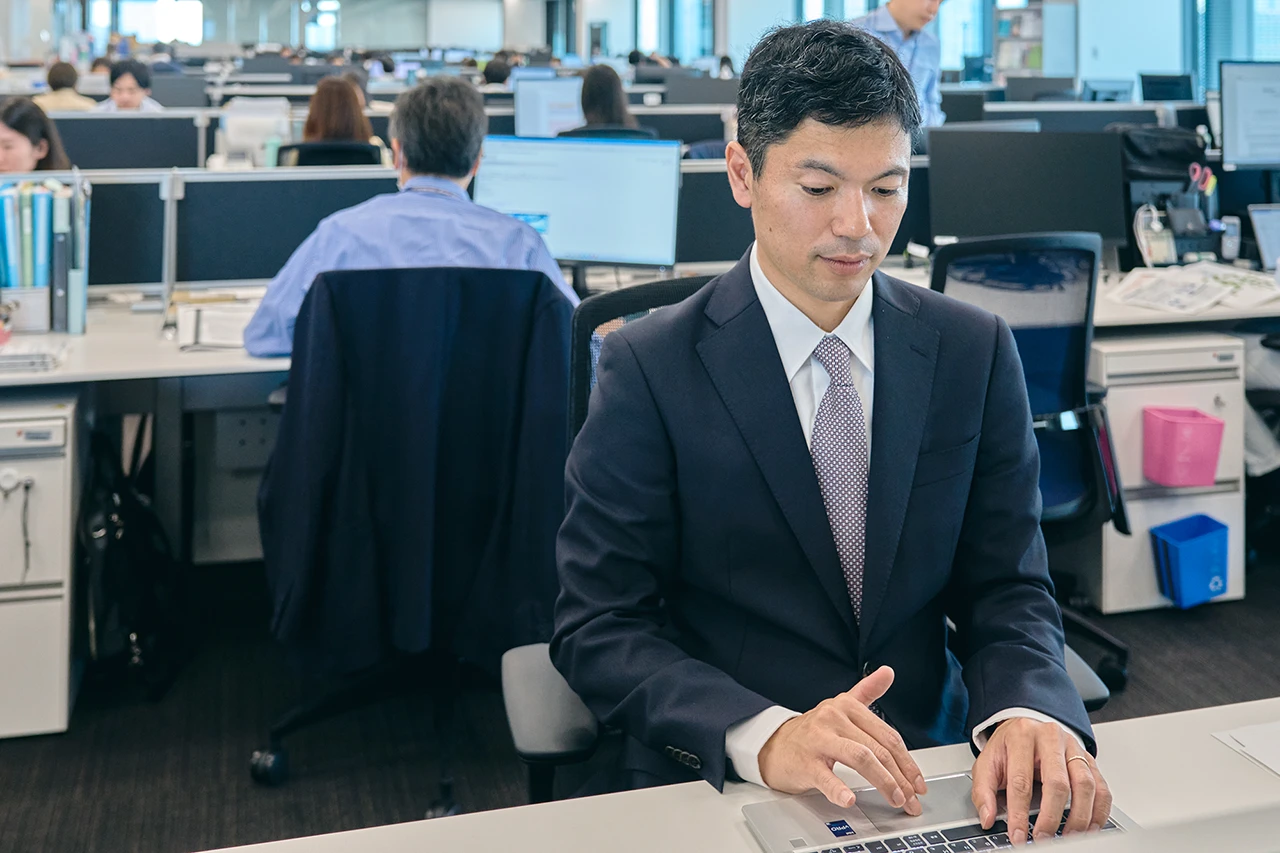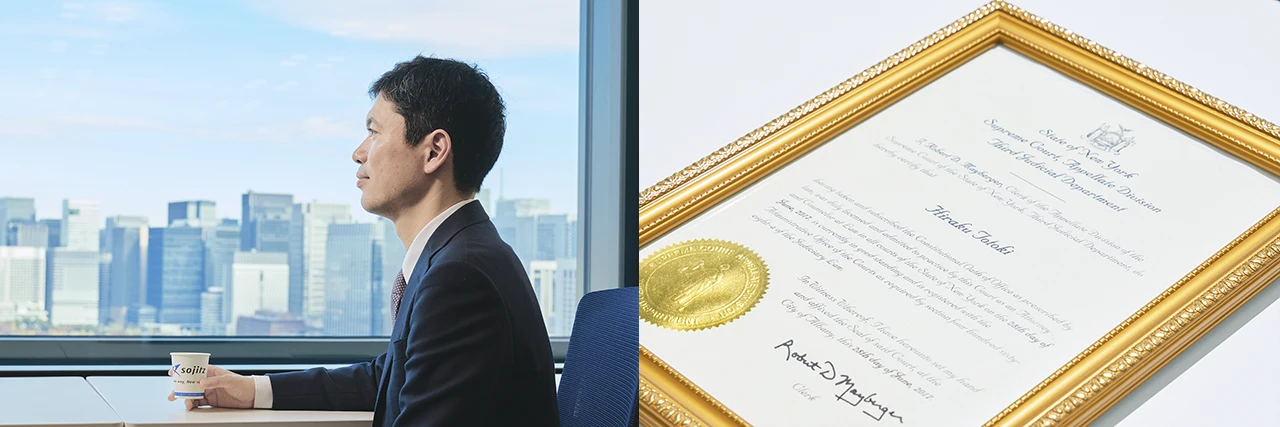Sojitz’s Leading In-House International Lawyers
Hiraku Totoki / Section Manager of Legal Department Section 4 Section Manager (NY licensed lawyer)
Jan. 24, 2025
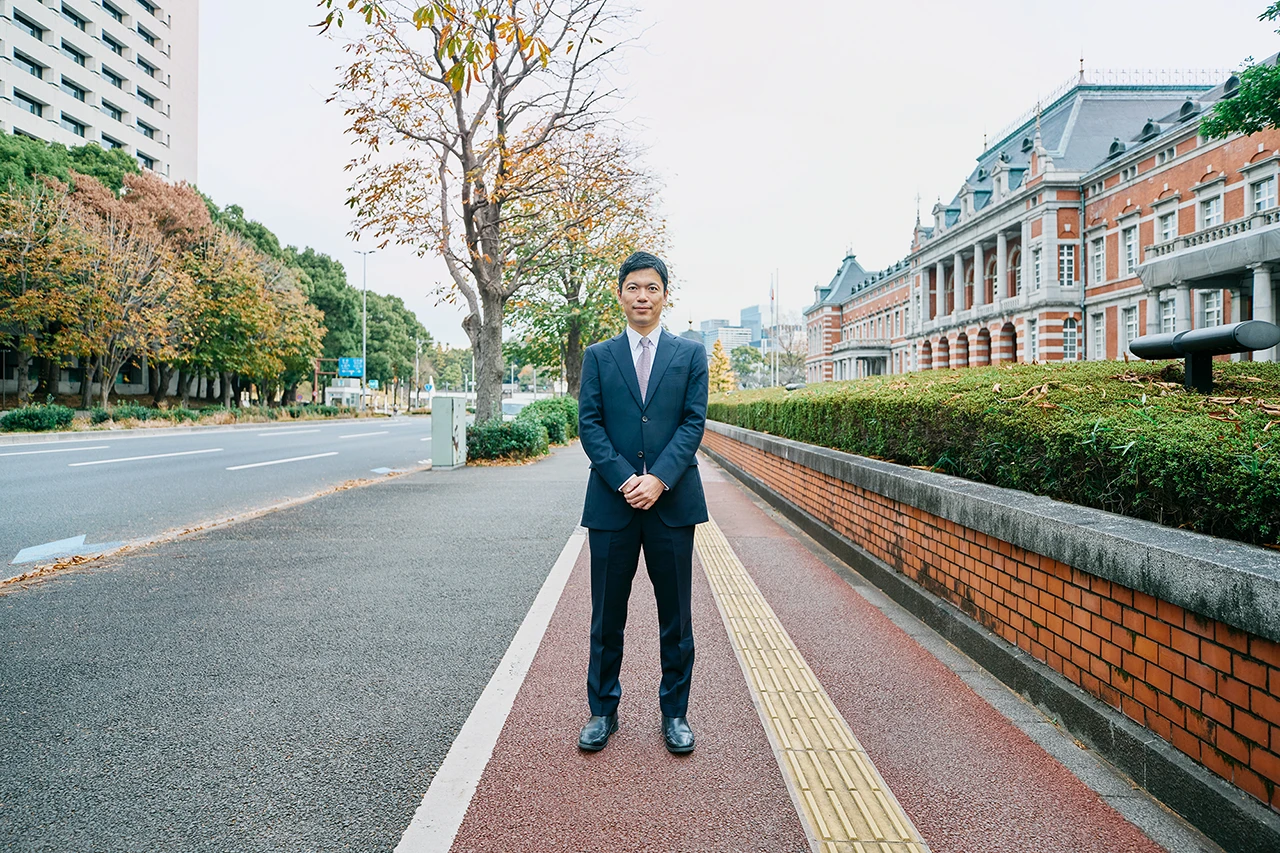
Since my university days, I dreamed of living and working abroad as a lawyer engaged in international projects. After obtaining my law license*¹ in Japan, I joined an American law firm based in Japan. As part of a capital markets group, I assembled financing through the issuing of stocks and corporate bonds. Despite working at an American firm, I had limited opportunities as a Japanese lawyer to work on overseas projects as contracts for overseas projects were governed by British law or other foreign laws. During this time, I received advice from many different people, and I opted to transition my career and join the legal team at Sojitz in order to fulfill my dream of working on overseas projects.
With two years of working at a foreign law firm under my belt, I was confident that I would be able to handle legal projects at Sojitz to a certain extent. However, after joining the company, I was humbled by the members of Sojitz’s Legal Department who greatly impressed me with their proficiency in English, legal expertise, and extensive understanding of business projects. At a law firm, lawyers provide legal advice, but the final decision is left up to the client. At Sojitz, I was fascinated by how the Legal Department worked to understand the business department’s vision, engaged in joint decision-making, and jointly built business projects. I find my current work both dynamic and exciting whether it is negotiating in English, drafting English language contracts, or collaborating with parties of diverse backgrounds. I am grateful that my exciting work at Sojitz aligns with the professional goals I first envisioned when joining the company.
*1 Not currently registered as a lawyer in Japan
During my career at Sojitz, I had the opportunity to study at a law school in Washington D.C. under the company’s legal trainee program. I still remember my excitement traveling to live overseas for the first time in my life. The LLM program I took was a U.S. law degree program geared towards foreign lawyers from countries around the world.
While my fellow classmates were not native English speakers, I was surprised by the high level of fluency in the program. In law school, class participation in discussions counts as part of each student’s grade. On many occasions, I felt frustrated by not being able to articulate my thoughts. I therefore tried to prove myself in written assignments and final exams by doing extensive preparation. My efforts paid off. At graduation, I received the Thomas Bradbury Chetwood, SJ Prize, which is awarded for high academic performance. After graduating from the LLM program, I took the New York bar exam and received my license to practice law in New York. Looking back, I can confidently say this period was the most I have ever studied in my life.
After graduating from law school, I began working at Sojitz Corporation of America (SCA) in New York as part of Sojitz’s trainee program. *2 Working abroad for the first time, I had a great deal to learn. Fortunately, all the SCA staff members were friendly and excellent at their jobs. As part of this team at SCA, I had to opportunity to participate in multiple U.S.-based projects. While I am currently working at headquarters in Japan, I am still making use of the experience I gained while working at SCA. For any project, I do my best to give detailed explanations regarding the business department’s vision and project status reports to foreign lawyers on the team. It is important to join forces to move projects forward, and I often reiterate this message to the members of my section. It is essential that we have the support of foreign lawyers who are specialized in foreign law and native speakers of English and other languages. I feel that involving foreign lawyers as much as possible is the fastest road to success.
*2 Trainee program: Sojitz has various training systems in place to cultivate management level employees, including an overseas trainee program, a system for dispatching employees to MBA programs, and self-guided programs for language acquisition.
For more details: Human Resource Management|Sojitz ESG BOOK|Sustainability|Sojitz Corporation
In my first or second year after joining Sojitz, I was responsible for overseeing the bidding for an infrastructure project in the Middle East. The terms of the contract had already been set, and we were just waiting on the final signatures. However, the counterparty could not obtain the necessary internal approvals on their side to close the contract. At this point, there was a risk that we would lose our bid deposit if the contract was not concluded by the specified date. We faced a crossroads: Should we continue to wait for the counterparty’s internal approval process or quickly withdraw our bid? Immediate action was needed considering the scale of the project. I was called by Sojitz’s then president to explain the terms of the contract alongside my manager.
“Based on the circumstances, it seems best we withdraw from this project,” the president said.
“Aside from the contract, there are other positive attributes to the project. Would it be possible to wait just a little bit longer to see things out?” I asked. After spending long hours working with the business department to reach this point, I was not ready to throw in the towel.
Ultimately, Sojitz was forced to withdraw from the project in light of additional circumstances that arose after meeting with the president. However, it was a rewarding experience to be able directly communicate with the president to explain the contract and offer input on decision-making as an in-house lawyer.
The Covid-19 pandemic also brought a host of issues to contend with. In one trading project, the counterparty unilaterally terminated the contract and said they would be canceling their services. While this action was a clear violation of the contract, conditions specified Europe as the location for arbitration. However, it would have been costly to hire and retain a lawyer in Europe and we would have faced a protracted dispute resolution process.
I therefore considered ways in which a lawsuit could be filed in Japan without going through the arbitration process in Europe and took steps in this direction after consulting with outside counsel. Filing a lawsuit in Japan would be a low-cost alternative to arbitration in Europe, and I anticipated that the other party would want to avoid a lawsuit to protect their assets in Japan from being seized by the courts. While I was concerned whether this was the best option considering the lack of precedent, I believed there was value in trying a new approach. After filing the lawsuit in Japan, I was taken off the project to return to the U.S. for another overseas assignment. However, I later heard from a member of the business department that a settlement had been reached with conditions that were advantageous for Sojitz. The fact that I can work alongside business departments to make strategic proposals and offer an innovative approach is one of the unique joys of being an in-house lawyer at a general trading company.
The role of Legal Department staff is to bring their legal knowledge and logical reasoning to the table and collaborate with business departments on new business creation. As Sojitz starts new businesses in a variety of countries around the world, we must continuously be engaged in the process of determining the type of contracts required and what content must be included in these contracts. In many cases, there is no precedent to follow when advancing these projects. While complicating factors often emerge, I find the work highly engaging. Personally, I feel that I have been able to expand my skills through the experiences I have gained at Sojitz working on multiple overseas projects.
Additionally, I am currently a section manager, and I encourage the members of my section to take on new challenges as much as possible through involvement in global projects. Through these projects, I believe each individual can improve and expand on their skills. In addition to personal growth, I believe that these new skills can be applied to new business creation through a challenge-taking approach that profits the company, and I aim to contribute to building an organization that promotes mutual growth for both employees and for the company.

